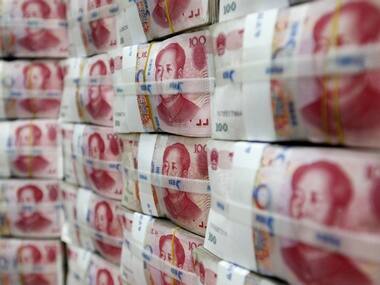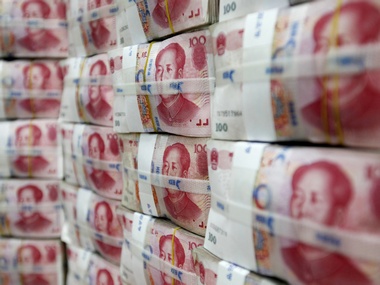The move by the government to permit Indian companies to raise as much as$1 billion in yuan debt , along with raising the cap on foreign borrowings without approvals by 50 percent to $750 million, will be welcome news to infrastructure companies that have delayed existing projects and avoided new ones for lack of cheap funds.
Companies have also been permitted to use 25 percent of the proceeds raised abroad to repay existing debt. The overall limit for external commercial borrowings (ECBs), however, stays at $30 billion.
The relaxation in ECB rules are aimed at attracting capital inflows at a time when global economic turbulence, a slowing local economy and tighter credit conditions threaten to slash access to inexpensive funding. Local borrowing costs have been driven higher by 12 interest rate hikes - including a 25-basis point increase in the repo policy rate today - in the past 18 months.A Issac George, chief financial officer at GVK Power and Infrastructure, told Bloomberg that the steps would “certainly help at a time domestic interest rates are threatening to hurt growth”.
[caption id=“attachment_85864” align=“alignleft” width=“380” caption=“The overall limit for external commercial borrowings (ECBs) stays at $30 billion. Reuters”]
 [/caption]
[/caption]
In July, capital goods production tumbled by a shocking 15 percent from a year earlier, confirming a trend that experts had already expected. In its latest monthly bulletin, the RBI also forecast a decline in capital expenditure (Capex) in 2011-12 (April-March) compared with the previous year.
A 2010 Goldman Sachs report had said India would need at least $1 trillion in infrastructure development to maintain 8-9 percent growth a year. But given the current slowdown, several infrastructure-related sectors, including power, have actually gone slow on project implementation because of unavailability of cheap funds. In effect, that puts India’s medium-term economic growth at risk.
Indian companies sold more than $9 billion of non-rupee bonds to investors abroad in 2011, twice the amount in the same period last year, Bloomberg data showed. They borrowed $14.6 billion of loans denominated in international currencies this year.
The decision to allow Indian companies to borrow in yuan, in particular, is expected to find plenty of enthusiastic takers.“Renminbi wants to play a greater role at the international stage as there is (a) market for it,” said R Gopalan, economic affairs secretary.DK Joshi, chief economist at ratings agency Crisil, told Mint newspaper that it showed the increasing relevance of the Chinese currency in international trade and finance.
Until now, companies could only borrow in dollars, pounds, euros and yen. Infrastructure Leasing & Financial Services, a lender to road projects, plans to raise $100 million from yuan-denominated bonds and has hired bankers to manage the sale, said this report. Lanco Infratech, Adani Power, SRM Energy and Moser Baer Projects are other companies that have evinced interest in yuan loans.
The Chinese are also interested.One report said Industrial and Commercial Bank of China Ltd, the world’s largest bank by market value, might be willing to provide services for Indian customers seeking to raise yuan funds from the sale of so-called dim-sum bonds.
However, a Firstpost report noted that yuan bonds, are, in fact, not really cheap and that they came with a several strings attached. The report warned companies to be careful while borrowing from Chinese lenders.
Still, enthusiasm remains high, especially since this is just the beginning. “There is a global shortage of dollar funding,” said one banker. “Today, Indian companies are willing to borrow in a currency that is fast becoming international. The flip side is that they will be saddled with a liability which is not convertible.”
The yuan is not fully convertible to other currencies in international currency markets. Overall, the easing of ECB restrictions is expected to lift sentiment in local financial markets. For a market battered by a continuing spell of bad news on the economy, inflation and corporate earnings, it’s a silver lining.
)